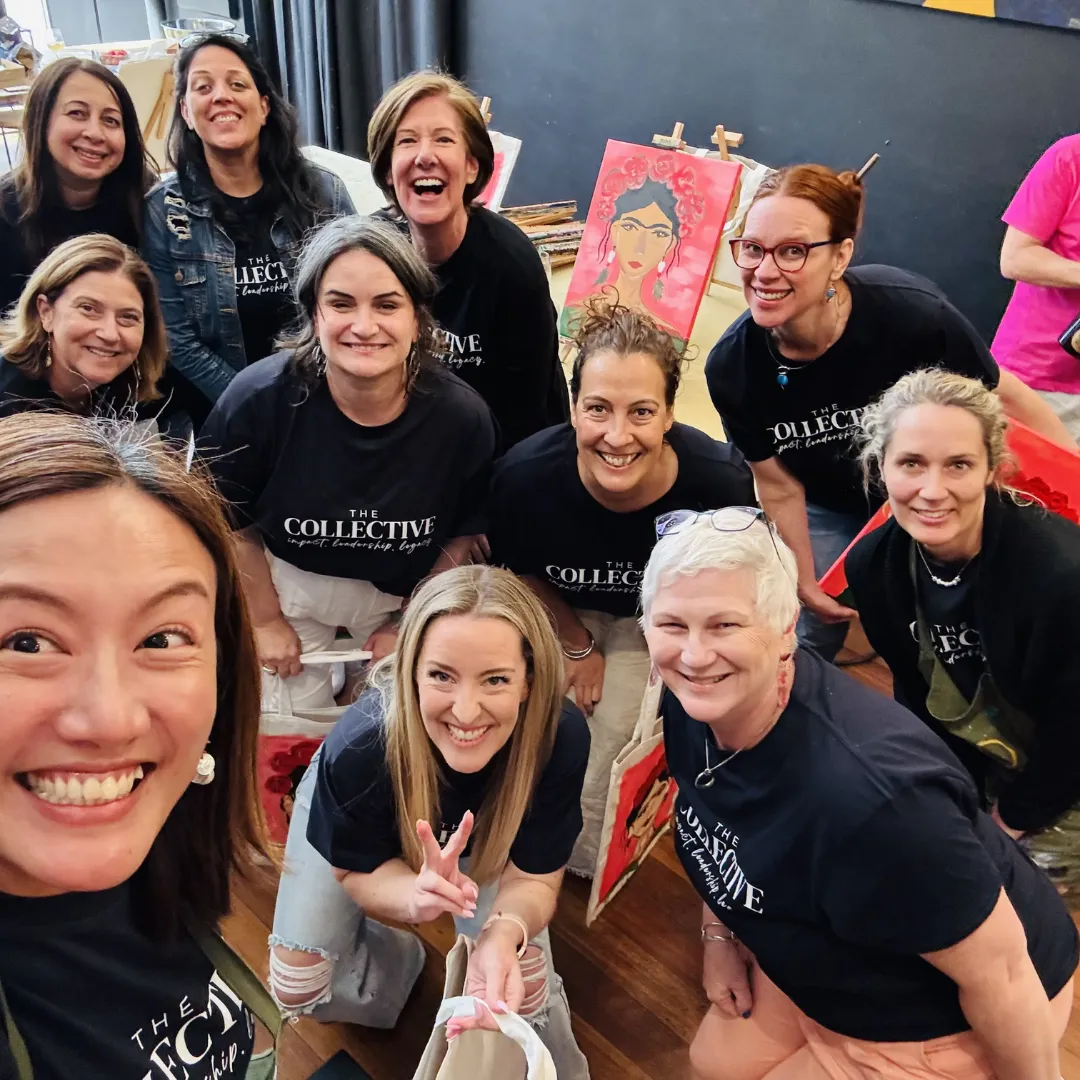
What a Boardroom Full of Therapists Taught Me About Being Human
I'm sitting in my quiet home office now, still buzzing with excitement from the last three days. Three days at the DoubleTree by Hilton, Perth, have left me with more than just hotel coffee jitters, sleepless nights, and a notebook full of business strategies. They've left me with something far more valuable: a profound reminder of our shared vulnerability and humanity.
Here's what happens when you put a group of therapists in a hotel boardroom and ask them to be students again...
1. The Power of Finding Your People
There's something almost magical about being in a room full of therapreneurs who understand your unique drive and mission to have an impact in this world. Who else but another therapist would nod knowingly when you talk about how perfectionism gets in the way of showing up on social media or laugh at therapist jokes?
As I watched conversations and those penny-drop moments unfold around me, I realized: We spend our days being the holders of space, but rarely get to experience what it feels like to be truly held by our community. The relief was palpable. The connection, magical.
2. The Seductive Dance of "New"
"Oh, I should definitely start a podcast!"
"Maybe I need to pivot to another offer of group program!"
"What if I created a low-cost digital course!"
I caught myself in this familiar dance of dopamine-driven excitement. You know that rush - when a new idea feels like the answer to everything? I watched it ripple through the room as we all caught the entrepreneurial fever.
But here's what I learned from my coach: The most successful therapists in the room weren't the ones chasing every new shiny object. They were the ones who could sit with the excitement while staying grounded in their core purpose. We often gain relief by chasing the dopamine rush, avoiding the return to the mess of solving original problems one by one as a neurodivergent therapist. Now that it's on my radar to notice this sparkling shiny rush, I'm committing to mindfully make space for it while staying anchored to my why.
3. The Great Unravelling
"The only thing that gets in the way in front of you is YOU!" my coach, Hayley, said as we shared farewell cocktails at Songbird.
"What do you mean?"
"The fact that you've been avoiding showing up as neurodivergent because you haven't got the diagnosis - that's what's getting in your way!"
And she is spot on. Did you know that it's harder for a woman of colour to be diagnosed with ADHD and Autism? If neurodiversity is truly a natural variation of our human gene pool, why are only Caucasian women commonly identified as neurodivergent, while Asian women are labelled as simply "fine" and "well-put-together" like the vase in the hotel boardroom? Or are we just so good at masking because of cultural expectations and social conditioning?
For years, I've struggled with executive functioning difficulties and many other challenges, but I've always thought it was a "me" issue that fed into the "not good enough" stories and that I needed to try harder. While I've worked through some of this in clinical supervision and coaching, the lingering fear, need for safety as an Asian neurodivergent, and social stigma continue to be ongoing inner work as I own my neurotype in this field. As I educate my clients about internalised ableism, I’m aware that it is still very much holding me back.
4. The Ghosts in the Boardroom
Imposter syndrome and rejection sensitivity showed up uninvited, as they often do. They lurked in the corners of our conversations:
"Everyone else seems to have it figured out..."
"What if my question sounds stupid?"
"Maybe I'm not ready for this..."
I noticed myself being uptight and awkward, as always, on the first day of any professional development. But something beautiful happened. As we named these ghosts, they began to lose their power. As I reflected with my colleagues and slowly gathered my courage to show up, I had a great time being myself.
5. The Art of Staying Open
Pain contracts our hearts. But if we can notice the pain, stay open, and curious, it allows us to receive what is there for us and truly land. As I reflected on the learning journey over the last two years with my coach and fellow practitioners, I noticed that people who generally embraced openness in their hearts and minds made the biggest progress and experienced the most significant breakthroughs.
If we really embody and cultivate this openness, we absorb like a sponge. As fellow therapists, you would relate - our personal and spiritual growth adds an edge to our clinical practices and how we show up in therapy. It's not just about techniques and manualized scripts; it's about the art of staying open and curious.
The Return
The greatest lesson? Perhaps it's this: Even as we guide others through their journeys, we're still on our own. And sometimes, the most powerful thing we can do is remember we're not walking alone.
To my fellow retreat-goers who shared this space: Thank you for the reminders that...
Community isn't just nice, it's necessary
New ideas are exciting, but discernment is golden
Our worth exists independent of our work
Our doubts won't disappear, but we can learn ways to better manage them
Learning happens when we dare to stay open
And to the therapist reading this who wasn't there: Consider this your invitation to find your people, honour your journey, and remember that sometimes the most professional thing we can do is allow ourselves to be beautifully, imperfectly human.
